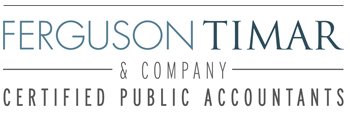
As 2021 winds down, it is time to start planning for your company’s 2021 tax season in earnest. There are numerous tax strategies that are sunsetting at the end of the year and changes to the tax code that your business will need to anticipate as 2022 dawns.
Tax Strategies that Won’t Be Available in 2022
Various provisions of the Coronavirus Aid, Relief, and Economic Security Act (CARES) expire when 2021 concludes. Among these expirations is the Employee Retention Credit (ERC).However, until the end of the year, employers remain eligible to claim a credit for paying employees qualifying wages up to $28,000 per year, per employee. This is a significant credit that your company should take advantage of before it is no longer available.
The CARES Act also adjusted the Section 163(j) limits on deducting business interest. Traditionally, this limitation has been set to the sum of a taxpayer’s floor plan financing interest, their business interest income, and 30% of their adjusted taxable income (ATI) for that particular tax year. The CARES Act bumped this last factor up to at least 50% of a taxpayer’s ATI. This limitation adjustment expires in December 2021. While taking advantage of this adjustment, note that you may need to account for back depreciation, depletion, and amortization—in addition to other factors—dating back as early as January 1, 2018. Don’t wait to speak with a tax advisor about this valuable tax strategy, as calculating this business interest deduction is a complex challenge that will take time.
Various CARES Act charitable giving adjustments for individual filers and businesses will also expire at the end of the year. For example, C-corporations may apply an increased limit of 25% of their taxable corporate income for cash contributions to eligible charities through the end of the year. Additionally, companies donating food inventory will benefit from increased deductions for certain contributions that classify as caring for the needy, ill, and infants through the end of 2021.
Tax Bracket Musical Chairs
As the 2021 federal income brackets are relatively unchanged from their 2020 structures, self-employed business owners need to examine their tax bracket status. You may benefit from deferring some income into 2022 and/or moving some deductions up into 2021 if you expect to be in a lower or similar tax bracket next year. Conversely, if you expect to increase your tax bracket status next year, you may benefit from accelerating some income into 2021 or delaying some deductions into 2022.
Determine Whether You Can Claim First-Year Bonus Depreciation
If your business acquired new or used property during 2021 and placed it into service, your company may benefit from 100% first-year bonus depreciation thanks to the Tax Cuts and Jobs Act (TCJA). Taking advantage of this new opportunity may save your company a great deal of money, depending on the value of qualifying assets purchased during this tax year.
Consider Taking the Home Office Deduction
If you were a small business owner working from home during the pandemic, you might qualify for the home office deduction. This deduction is newly relevant to many small business owners who previously worked out of office or shared working spaces.
Looking Ahead to 2022
As the Biden administration has proposed tax rate hikes at the corporate, estate, individual, and gifting levels, you may want to accelerate income during 2021 or delay deductions until 2022. Similarly, deferring certain charitable giving (that doesn’t qualify for increased deductions in 2021) may be beneficial to your proactive tax planning approach for 2022.
Finally, note that the temporary 100% deduction for qualifying business meals expires on December 31, 2022. Plan to take advantage of this benefit throughout the following year, if applicable to your business needs.
The experienced team at Ferguson Timar is here to assist you with your company’s 2021 tax needs. For personalized feedback concerning your corporate taxation strategies, connect with our team via email or give us a call at (714) 204-0100. We look forward to speaking with you.
